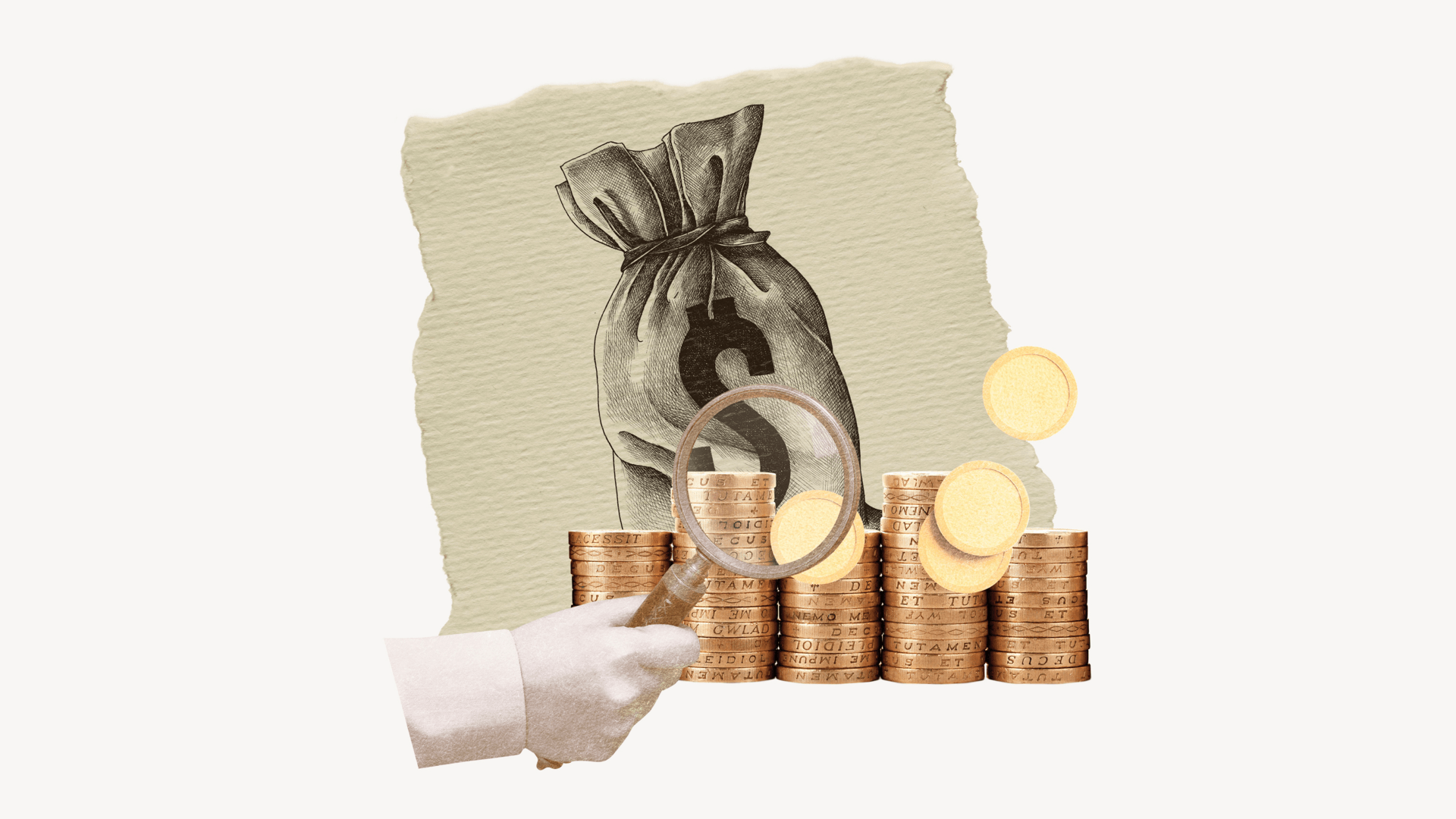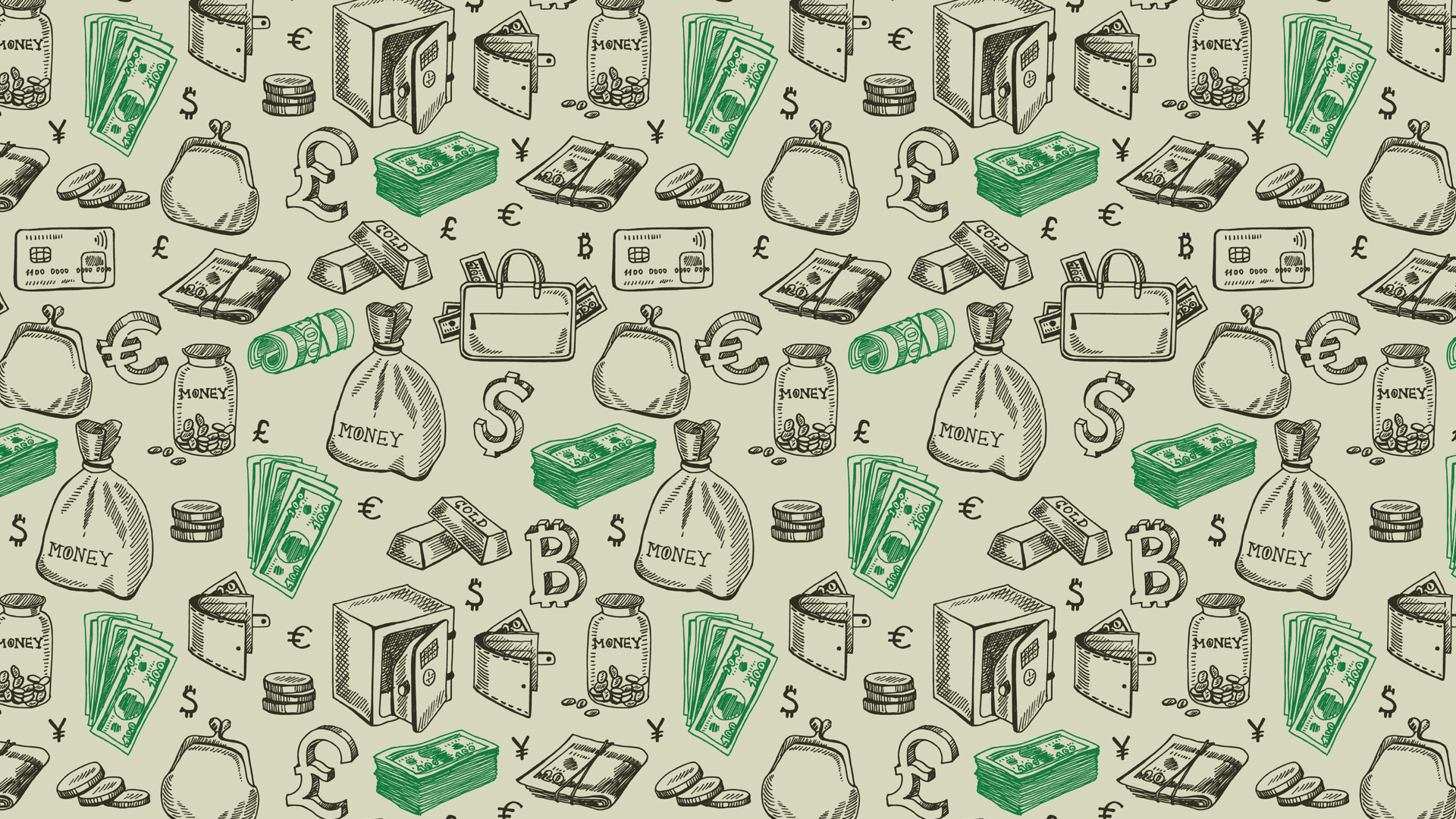Riba: What It Is, and How to Avoid it

The Islamic Golden Age saw the Muslim civilization flourish with significant advancements made in areas such as science and the arts. This was all underpinned by Islamic economic ideals, which didn’t allow the use of riba. Riba (interest) is strictly forbidden in Islam and has many evils. Fast forward to the present, where Muslims are no longer economic powers, and riba has corrupted modern society.
Lending at interest has become widespread, and even our economies revolve around manipulating interest rates to try and control inflation. This is why it's major news whenever central banks such as the US Federal Reserve, Bank of England, and the Bank of Canada announce changes to their interest rates.
To reclaim our economic sovereignty, Muslims must again lead the fight against riba. This article will look deeper into the problems with interest and make recommendations on what you can do to avoid and combat it.
What is riba?
Scholars have defined riba as an increase in a particular item. It is an Arabic term with multiple meanings and derivatives. Its common themes are growth, increase, and overpower.
Riba was previously referred to as ‘usury’ in the English language but had a poor reputation, having been outlawed by the three Abrahamic faiths. It is now commonly referred to as “interest” to escape this reputation. For this article, we define Riba as any amount of interest (excess) charged for a loan.
Modern forms of riba
The Prophet (PBUH) prophesized that there would come a time when riba would become so widespread and systematic that no one would be able to escape its effects, even if they didn’t consume it. When you look at the modern economy and how fundamental interest has become, it appears that we are already at that time or close to it.
Let’s break down the major forms of interest that affect us today and show just how far-reaching the effects of riba are.
Everyday riba
The most obvious and well-known form of interest is lending money for a return. This is the type of interest that people consume on an individual level. This has now become normalized, and much of the previous stigma associated with usury has now gone.
We live in the age of banks, where generally, in exchange for banks storing your cash, they pay you interest. In turn, one of the ways banks make money is by lending your money to other parties for more interest.
Many purchases are also now funded using interest-based financing. What typically was reserved for larger purchases such as houses, cars, or luxury goods is now extended to more everyday purchases with credit cards and products such as ‘Buy Now Pay Later’ becoming widespread.
Global interest rates
Central banks worldwide are tasked with delivering a stable and prosperous economy. They attempt to achieve this by managing the inflation rate. Their main tool to do this is through changing their interest rate, which acts as a benchmark for the rest of the economy. The chosen interest rate has significant economic consequences and is closely watched by businesses and consumers.
Low-interest rates force savers to look for better returns elsewhere, boosting demand for assets such as stocks and shares. House prices also benefit with low-interest loans increasing demand. By making borrowing cheap, central banks hope to influence consumers to spend more to boost economic growth.
High-interest rates, on the other hand, incentivize people to spend less and save more money by making borrowing more expensive. Central banks commonly do this to try and lower the rate of inflation. This shows how influential the benchmark interest rates are and how they will have consequences for all, even if you don’t individually consume riba.
Money creation
There is also a less obvious form of interest that we need to be aware of, which is the creation of money. Our currencies of choice used to be gold and silver - rare commodities which required physical effort to extract from the earth.
This has changed with the introduction of paper money (a.k.a fiat money), which has no natural limits to its creation. It’s easy to print money, and in the digital age, where money is just digits in your bank balances, it can simply be entered on a computer.
The common misconception is that governments and central banks are the ones that control the creation of fiat money. However, this is far from the truth. In reality, the majority of money in the economy is created by banks when they lend out money. The Bank of England themselves admit that 80% of the money in the UK economy is created by banks lending at interest. This is a hidden interest that many are unaware of.
Not only do banks lend money on interest, but they also lend money that is created from nothing! This is due to the fractional reserve system, which means that banks only need to keep a certain percentage of their deposits for redemptions. They can then lend out the rest, which causes more money to circulate in the economy.
For example, suppose banks must keep 20% of deposits on hand and can lend the remaining 80%. Andy comes along and deposits $100 in a bank. The bank then keeps $20 on hand and lends $80 to Bob. Bob uses the $80 to purchase goods from Chris. Chris then deposits this $80 into his bank. As Andy’s bank balance is still $100, the bank now has a total of $180 in customer deposits. The bank can now lend out 80% of Chris’s $80, continuing the cycle.
This is a basic example that doesn’t factor in the interest charged on the loans, but it should demonstrate how money creation is usurious. Moreover, it compromises the stability of the financial system. Consequently, during times of recession, banks become vulnerable to ‘bank runs’; when many people try to withdraw simultaneously but there isn’t enough money available.
The harmful consequences of riba, and why it's forbidden
In Islam, riba is a grave sin, with perpetrators of riba warned of war with Allah (SWT) and His Messenger (PBUH).
“O believers! Fear Allah, and give up outstanding interest if you are ˹true˺ believers. If you do not, then beware of a war with Allah and His Messenger! But if you repent, you may retain your principal—neither inflicting nor suffering harm.” (Quran 2:278-279)
However, despite this extraordinary warning of war, some still argue that charging interest isn’t immoral. Thus, I will share several reasons why riba is such a destructive sin.
Riba fosters inequality
Interest is an exploitative practice that helps the rich and harms the poor. It allows rich people to make a guaranteed return simply because they are already wealthy. It penalizes the poor whose efforts are exploited. It’s inequitable as the poor take on all the risk.
Paying interest also makes it more difficult for the poor to build wealth. Instead, it can trap them in a never-ending cycle of debt. This is compounded by the penalties imposed by most interest-based products, such as late repayment fees and overdraft charges. These penalties disproportionately punish the poor and exacerbate inequality.
Riba makes us all poorer
As discussed above, money creation through interest increases the money supply, leading to inflation. If there are more dollars overall, then the value of each dollar becomes worth less.
Sometimes the government and central banks are directly responsible for usurious money creation. When governments need money, they sell bonds to raise money. A bond is a promise to pay an amount to the buyer upon expiry as well as interest payments over the bond period. Big financial institutions such as banks and wealthy private investors buy these bonds.
In times of crisis, the central bank purchases these bonds from financial institutions. They fund this by digitally creating new money. This process is known as Quantitative Easing (QE), which is designed to encourage spending and investment and help wealth trickle down. However, the wealthy buyers of these bonds use this money to pump into the asset markets, causing prices to go up.
These forms of usurious money creation are a hidden tax on the population, and while it affects us all, the poor get hit the hardest.
This is due to the Cantillon Effect, which describes how those closest to the newly created money get to spend it first before it trickles down and causes prices to go up. Typically, wealthy institutions such as banks are closest to new money. As inflation rises, the value of assets increases while the purchasing power of cash decreases.
This benefits the rich as they will have more of their wealth in investments such as properties, stocks, and commodities. In contrast, it disadvantages the poor, who have most of their wealth in cash or as equity in their home, as they have little wealth to invest in assets.
Riba leads to bad outcomes
Being able to lend money at interest leads to bad outcomes for society. Money doesn’t flow to the places where it could be most beneficial, as lenders have no incentive to look for value-generating opportunities.
This is because lenders are guaranteed their capital regardless of what the borrower does with the money. This is terrible for the economy as money isn’t distributed where it can be most beneficial. Instead, it is going to only those that are eligible for loans.
It was this type of reckless lending that contributed to the 2008 financial crisis causing financial ruin for so many. Banks were giving cheap loans to everyone, which inflated the housing market. When the market crashed, many people defaulted on their loans, causing a domino effect that caused a global recession.
The financier should share in the risk of the venture instead of expecting a guaranteed return. This would incentivize more due diligence on what gets funded and would lead to capital flowing to more value-generated investments.
Allah (SWT) also tells us in the Quran that no real growth comes from the proceeds of riba. Instead, any outcome from riba activities lacks spiritual benefit.
“Whatever loans you give, ˹only˺ seeking interest at the expense of people’s wealth will not increase with Allah” (Quran 30:39).
Riba is pervasive
Riba doesn't just stop at just one transaction. The interest received from the initial loan will be reinvested into another loan transaction, continuing the cycle. For example, if John lends $100 and receives $10 interest, the next time he lends money, he will lend out $110 and receive $11 interest. You can see how the initial interest multiplies in practice as per the following verse from the Quran warning against precisely this scenario.
"O believers! Do not consume interest, multiplying it many times over. And be mindful of Allah, so you may prosper." (Quran 3:130)
Riba is inferior to zakat
The Quran contrasts riba with charity, telling believers that only charity is a rewarding activity.
"Whatever loans you give, ˹only˺ seeking interest at the expense of people’s wealth will not increase with Allah. But whatever charity you give, ˹only˺ seeking the pleasure of Allah—it is they whose reward will be multiplied." (Quran 30:39)
This is a fascinating comparison that makes perfect sense. Interest incentivizes people to hoard capital, as they can earn money through interest without any effort. They don’t have to find productive ways to use this money and perform real work that benefits society.
However, zakat circulates wealth from those that have enough to those that need it. This gives the poorer the opportunity to level up and contribute to society and demonstrates why zakat is superior to interest.
Riba is dishonorable
Giving a loan is a noble practice that has been praised in the Quran.
“Who will lend to Allah a good loan which Allah will multiply many times over? It is Allah ˹alone˺ who decreases and increases ˹wealth˺. And to Him you will ˹all˺ be returned.” (Quran 2:245)
The tafsir of the above verse mentions that one of the meanings of giving Allah a loan is giving a loan to His slaves in their time of need. Commercializing this practice and charging a fee is thus dishonorable and sours an act of dignity.
Four ways to preserve your wealth without resorting to riba
Even though the economy favors those who consume interest, as Muslims, we know this favor isn’t everlasting and is spiritually void. We know we will be ultimately rewarded for shunning riba. In the meantime, there are still practical steps that Muslims can take to preserve and grow their wealth in a halal way.
#1. Use halal alternatives
The first thing we can do is shun riba-based products and use halal alternatives instead. This instruction comes directly from the Quran, where believers are commanded to give up interest and repent.
Therefore, review your financial arrangements to see if you are currently consuming or paying interest. If so, you need to get out of these arrangements as soon as possible. Do some research on each area to understand what the riba-free options are.
Many Muslim entrepreneurs are working hard to build genuine Shariah-compliant alternatives in areas such as home financing and business funding. Some non-Muslim products don’t necessarily involve riba, so assess each product on a case-by-case basis.
Unfortunately, in some areas, genuine alternatives will be needed. This is where we need to band together as a community and work with other like-minded individuals.
#2. Trade instead of riba
Instead of earning a risk-free return via lending at interest, Muslims should attempt to grow their wealth through trading (i.e., entrepreneurship). As the famous verse from the Quran goes:
“Allah has permitted trading and forbidden interest.” (Quran 2:275)
We should strive to build wealth for our families and communities by hustling and creating value for the world. Take the famous companion Abdur-Rahman ibn Awf (RA), for example. In 622, he performed hijra to Madinah with the rest of the fledgling Islamic nation. They had just escaped persecution in Makkah and so arrived with little to their name.
As they arrived, the Prophet (PBUH) paired each of the Muhajirun (emigrants) with one of the Ansar (helpers). Abdur-Rahman’s partner was Sa’d bin Ar-Rabi, who offered him half of his wealth. Amazingly, Abdur-Rahman turned this extraordinary offer down and asked to be directed to the market.
He had tawakkul (trust) in Allah (SWT) and wanted to make his own way. In turn, Allah blessed him with great wealth. We can take great inspiration from this story by having tawakkul and doing our best with the available resources to us.
#3. Halal investing
Another way to grow your wealth is by investing. Put some of your money to work by investing in assets such as real estate and stocks that can appreciate in value. This could help you grow your wealth and protect your savings from inflation.
If being an entrepreneur isn’t your cup of tea, then investing in stocks is the next best thing. You can fund businesses that you like and profit from their success. When it comes to investing, it’s essential to make sure you invest in halal stocks. To do this, you need to ensure that each company's primary activities are halal and that its financial behavior is also within permissible limits. Using an app like Zoya makes this process quick and effortless.

Zoya: Halal Stocks, ETFs, Mutual Funds
Zoya makes halal investing easy by helping you build and monitor a shariah compliant investment portfolio with confidence and clarity.
However, remember that investing isn’t risk-free. To do it successfully, you must pick the right investment strategy.
#4. Use sound money
We’ve discussed how inflation caused by interest can eat at the value of your money. This leads us to the concept of ‘sound money.’ Sound money is simply money whose value is stable and preserves its purchasing power over time.
Gold is the most famous example of sound money as it has historically been established as the best store of value. Part of this is due to its scarcity. Gold is rare and is hard to mine from the earth.
This contrasts with today’s fiat money, which are pieces of paper that can be easily printed. The only restraint on their production is their fiscal discipline. Hence today’s currencies of choice, which are intertwined with an interest-based monetary policy, don’t hold their value well.
Take the US dollar, which currently acts as the world’s reserve currency (held by the rest of the world to use for international transactions). In 1913, Federal Reserve banks were given the power to control the money supply, and since then, the purchasing power of the dollar has fallen drastically. The U.S. Bureau of Labor Statistics research shows that $1 in 1913 had the equivalent purchasing power of $26 in 2020!
What’s more, between 2000 and 2021, the US money supply went from $4.6 trillion to $19.5 trillion. This staggering increase illustrates the scale of the issue we are now facing.
There is no easy solution to this problem. Many have long argued for a return to the gold standard where money was backed by physical gold. However, this would be a direct challenge to the current economic status quo and a difficult feat to accomplish.
There have been modern attempts to solve this problem by creating Bitcoin, a digital currency that has been described as ‘digital gold.’ Its proponents argue that it is the soundest form of money. However, it is a new invention and doesn’t have the longevity of gold, and its technology is not yet accessible to the everyday person who isn’t tech-savvy.

It is clear that Muslims should think more deeply about the concept of sound money and how they store their hard-earned wealth. You should make decisions to do hijrah to the soundest money available to you. Many people who live in economies with weak currencies and high inflation already do this by saving in stronger currencies.
We should also advocate for sound monetary policies in our countries and educate people on the evils of interest-based monetary creation.
Final words
Once you understand the consequences of riba, it is easy to appreciate why it is such a major sin. It’s a sin that scholars describe as causing civilizational harm, which is why the punishment for it is so dear.
Therefore we as Muslims must be aware of this sin and the different forms in which it manifests. We must also work together to build and promote solutions that combat riba, for ourselves and the rest of humanity.

